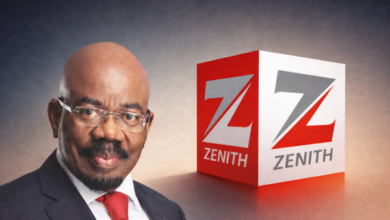Nigeria Eyes Top-50 Global Ranking in AI Readiness

Nigeria has set its sights on becoming one of the top 50 AI-ready countries in the world, signaling an ambitious leap into the next frontier of digital transformation. The announcement came at the Colloquium on AI Policy in Nigeria, themed “Navigating Opportunities and Challenges for National Development”, held in Abuja.
A Vision for AI Leadership
Hadiza Usman, Special Adviser to the President on Policy and Coordination, represented by Dr. Khalifa Nuhu, stressed that achieving this target requires leadership, vision, investment, and partnerships. Nigeria’s inclusion in TIME Magazine’s list of top AI-ready nations has already put the country on the global radar, but the road to true competitiveness is steep.
The government is positioning AI not as a luxury but as a strategic enabler for healthcare, agriculture, public services, and the broader economy. Contextualisation of AI policies—tailoring global frameworks to local realities such as infrastructural deficits, regulatory gaps, and unique development challenges—was emphasised as critical.
Innovation vs Regulation
Industry voices at the colloquium called for balance between regulation and innovation. Hawwau Gambo, Head of Communications at the Nigerian Deposit Insurance Commission (NDIC), insisted that policies must protect end-users without stifling innovation.
“AI developers, fintech founders, and creative minds must not be strangled by overregulation. At the same time, guidelines are necessary to safeguard depositors and the financial system,” Gambo said.
This duality—protecting consumers while unleashing innovation—remains the central tension in Nigeria’s tech policy space.
The Business and Development Stakes
AI is increasingly seen as a development multiplier. In agriculture, AI can optimise yields, reduce waste, and manage climate risk. In healthcare, it can enhance diagnostics and remote care. In governance, AI-driven data can sharpen decision-making and resource allocation.
For Nigeria’s economy, the real prize lies in digital competitiveness: if harnessed correctly, AI can drive productivity, reduce costs, and create entirely new industries—helping accelerate the government’s $1 trillion GDP vision by 2030.
Yet challenges remain. Nigeria’s AI readiness depends not just on policy but on infrastructure, electricity, broadband penetration, skilled talent pipelines, and investor confidence. Without rapid improvements in these fundamentals, AI risks becoming another buzzword instead of a transformative tool.
Towards a National AI Framework
Tech ecosystem leaders like Leah Katung-Babatunde, CEO of Saban Media Services, argued for ethical AI frameworks to ensure inclusion and fairness. “AI is not a distant concept—it is here, reshaping how we live and work. But with great power comes great responsibility,” she said.
For policymakers, the challenge is ensuring AI adoption that is inclusive, equitable, and future-proof. Nigeria must avoid both digital colonialism and local exclusion, ensuring AI strengthens rather than undermines sovereignty, human capital, and societal trust.
BRANDECONOMY Take
Nigeria’s ambition to rank among the top 50 AI-ready nations is bold but achievable—if rhetoric translates into investments, reforms, and execution. This means:
- Incentivising local AI startups with funding and access to data.
- Building strong university–industry linkages for AI research and talent.
- Expanding cloud and broadband infrastructure for scale.
- Enforcing ethical guidelines that protect citizens while encouraging innovation.
The AI race is not about mere readiness—it is about who controls the algorithms that will power economies of the future. Nigeria cannot afford to sit on the sidelines.












